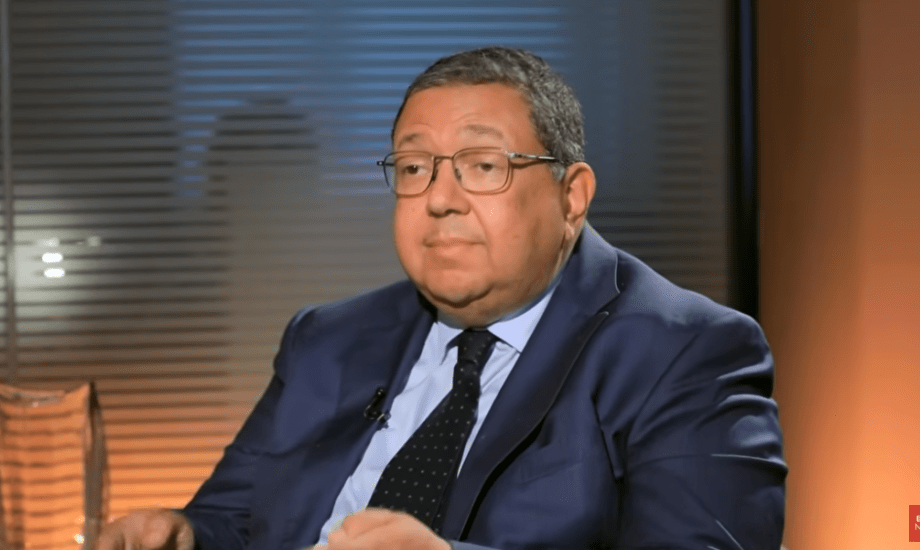Dr. Ziad Bahaa El-Din, former Deputy Prime Minister and prominent economic thinker, has emphasized the urgent need for Egypt to shift its economic policies to achieve tangible improvements, particularly as the International Monetary Fund (IMF) program nears its conclusion in mid-2025. Speaking on the program “Hadrat Al-Muwatin” with media personality Sayed Ali, he stressed that the next economic framework must be a nationally driven initiative focused on Egypt’s long-term interests and real economic growth, rather than relying solely on macroeconomic indicators.
Bahaa El-Din acknowledged that Egypt has made significant macroeconomic progress in recent years, including reduced inflation rates, increased GDP growth, currency stability, and rising foreign currency inflows from remittances and tourism. However, he pointed out that these gains have not translated into improved living standards for most citizens, who continue to face high living costs and a shortage of jobs that meet salary expectations.
He compared the current state to constructing a building on solid foundations: while structural reforms have strengthened the base, further work is needed—through government policy and private sector empowerment—to complete the structure. Despite major macro-level adjustments, policies to boost employment and investment have not yet delivered the desired outcomes.
On the topic of personnel changes in economic leadership, Bahaa El-Din argued that policy transformation should take precedence. While reshuffling officials may support new directions, the core focus must be on designing forward-looking economic strategies suited to the post-IMF phase. He called for a comprehensive national economic program that builds on past reforms rather than reversing them.
Regarding the IMF program, he noted that Egypt benefited indirectly through greater economic stability, though at a high social cost due to prolonged periods of elevated inflation. Citizens, he said, have paid a steep price in their daily lives over the past three years. Yet, positive outcomes—such as exchange rate stability, growth recovery, and improved tourism and remittance inflows—must now be leveraged for future development.
He warned against rolling back achieved gains, stating, “If we retreat from the progress we’ve made, we will have paid the price twice without reaping real benefits.” Instead, the focus should shift toward a sustainable national economic agenda that supports local production, encourages exports, strengthens the private sector, increases investment, and creates jobs.
In conclusion, Bahaa El-Din urged policymakers not to abandon hard-won reforms. He emphasized that capitalizing on these achievements should not remain an aspiration but must become a strategic imperative for advancing toward a more stable and prosperous economic future. His call comes at a critical juncture, as Egypt navigates the end of its IMF engagement and ongoing domestic economic challenges.
— news from aleqaria.com.eG
— News Original —
زياد بهاء الدين: حان الوقت لتطوير برنامج اقتصادي وطني
أكد الدكتور زياد بهاء الدين، نائب رئيس الوزراء الأسبق والمفكر الاقتصادي، أن مصر بحاجة إلى تغيير السياسات الاقتصادية من أجل تحقيق تحسن حقيقي في الاقتصاد، خاصة مع قرب انتهاء برنامج صندوق النقد الدولي في منتصف العام القادم. n nوأضاف خلال مداخلة مع الإعلامي سيد علي في برنامج “حضرة المواطن”، أن البرنامج الاقتصادي المقبل يجب أن يكون برنامجًا وطنيًا يراعي مصالح مصر ويعزز الاقتصاد الحقيقي وليس الاقتصادات الكلية، مشددًا على ضرورة استمرار البناء على الإصلاحات السابقة بدلاً من العودة عنها. n nوأوضح أن مصر شهدت إصلاحات اقتصادية كلية حقيقية خلال السنوات الماضية، أسفرت عن انخفاض معدلات التضخم، وزيادة النمو، واستقرار سعر العملة، وزيادة التدفقات الدولارية من التحويلات الخارجية والسياحة. ولكن، في المقابل، لا يزال المواطن المصري يعاني من تأثيرات التضخم على مستوى معيشته، ومن نقص فرص العمل والوظائف التي تواكب توقعات المرتبات. n nالإصلاحات الاقتصادية: أسس سليمة ولكن هناك حاجة للمزيد n nوفي إطار حديثه عن الإصلاحات الاقتصادية، قارن د. زياد الوضع الراهن ببناء عمارة جديدة على أساسات سليمة، حيث تم تحسين الأسس والبنية التحتية، ولكن لا يزال من الضروري استكمال الأعمال، سواء من خلال السياسات الحكومية أو تعزيز دور القطاع الخاص في الاقتصاد. وأوضح أن الإصلاحات الكبرى التي تمت على المستوى الكلي تتطلب تبني سياسات تدفع نحو التشغيل وزيادة الاستثمارات، وهو ما لم يتحقق بعد بالشكل المطلوب. n nتغيير السياسات أم تغيير الأشخاص؟ n nفيما يتعلق بتغيير الأشخاص في المناصب الاقتصادية، أكد د. زياد أن المسألة تتعلق بتغيير السياسات أولاً، مشيرًا إلى أنه إذا كان تغيير الأشخاص جزءًا من تحقيق السياسات المطلوبة فليكن، ولكن في النهاية الأهم هو تغيير السياسات الاقتصادية بما يتناسب مع المرحلة القادمة بعد انتهاء برنامج صندوق النقد الدولي، منوها بأنه حان الوقت لتطوير برنامج اقتصادي وطني، يستفيد من الإصلاحات التي تمت في الماضي ولا يتراجع عنها. n nبرنامج صندوق النقد الدولي: استفادت مصر ولكن الثمن كان باهظًا n nوحول برنامج صندوق النقد الدولي، أشار إلى أن مصر استفادت بشكل غير مباشر من الإصلاحات التي تمت، حيث أسهمت في تحقيق استقرار نسبي في الاقتصاد، على الرغم من المعاناة الشديدة التي عاشها المواطن المصري بسبب ارتفاع معدلات التضخم. وأكد أن المواطن دفع ثمناً غاليًا في حياته اليومية جراء هذه الإصلاحات، خاصة خلال ثلاث سنوات متتالية من التضخم المرتفع. n nلكنه أضاف أن التأثيرات الإيجابية للبرنامج مثل استقرار سعر الصرف وزيادة معدلات النمو وتحسن السياحة وزيادة التحويلات المالية يجب أن تُبنى عليها في الفترة المقبلة، وحذر من التراجع عن هذه الإصلاحات، قائلاً: “لو رجعنا إلى الوراء في المكاسب التي حققناها، نكون قد دفعنا الثمن مرتين دون أن نحقق استفادة حقيقية”. n nالبرنامج الوطني المقبل: ضرورة الاستفادة من الإصلاحات n nواختتم د. زياد حديثه بالتأكيد على أن مصر بحاجة إلى برنامج اقتصادي وطني يقود إلى تحسين الوضع الاقتصادي الحقيقي وليس الاقتصادات الكلية فقط، ويشمل دعم القطاع الخاص وزيادة الاستثمار وتوفير فرص العمل، مشيرا إلى أن بناء برنامج اقتصادي مستدام يتطلب تنفيذ سياسات تدعم الإنتاج المحلي وتشجع على التصدير، بالإضافة إلى التفاعل الجاد مع التحديات الاقتصادية الحالية. n nفي الختام، دعا زياد بهاء الدين إلى عدم العودة في الإصلاحات التي تم تحقيقها، مشددًا على أن الاستفادة من الإصلاحات لا يجب أن تكون مجرد حلم، بل ضرورة للانتقال إلى مرحلة اقتصادية أكثر استقرارًا وازدهارًا. n nالبرنامج الاقتصادي الوطني الذي دعا إليه الدكتور زياد بهاء الدين يأتي في وقت حاسم، حيث يتزامن مع نهاية برنامج صندوق النقد الدولي واستمرار التحديات التي تواجه الاقتصاد المصري والمواطن المصري على حد سواء.
